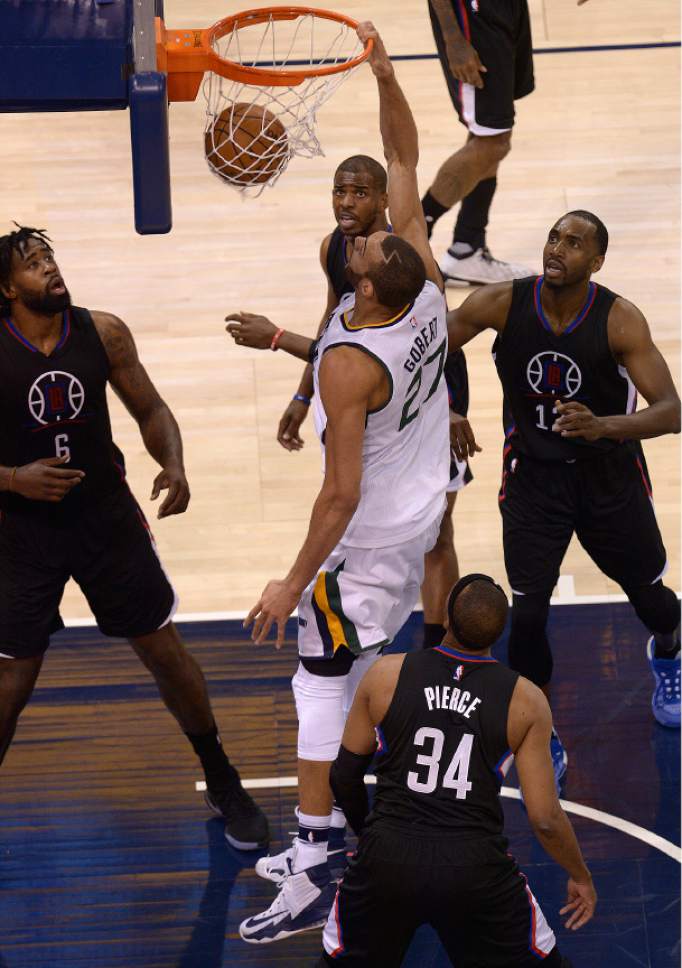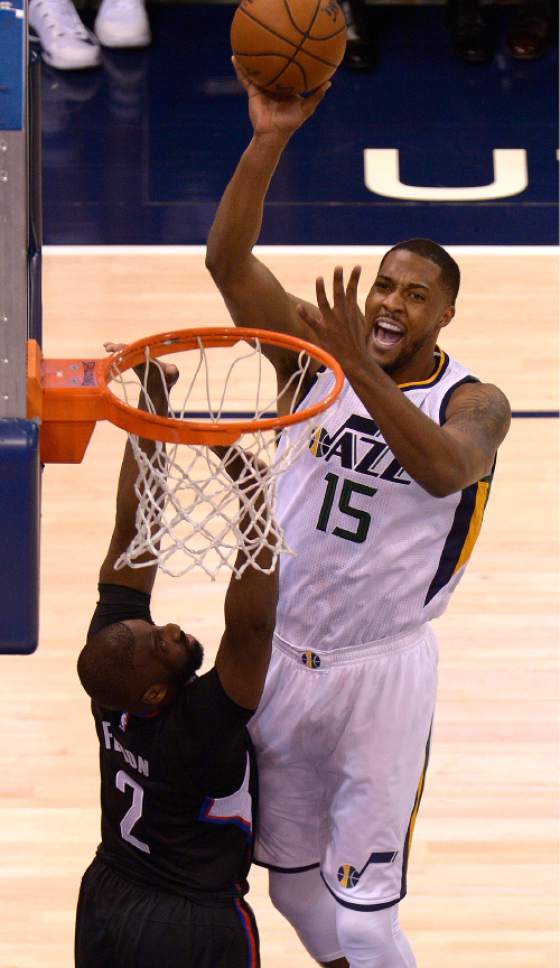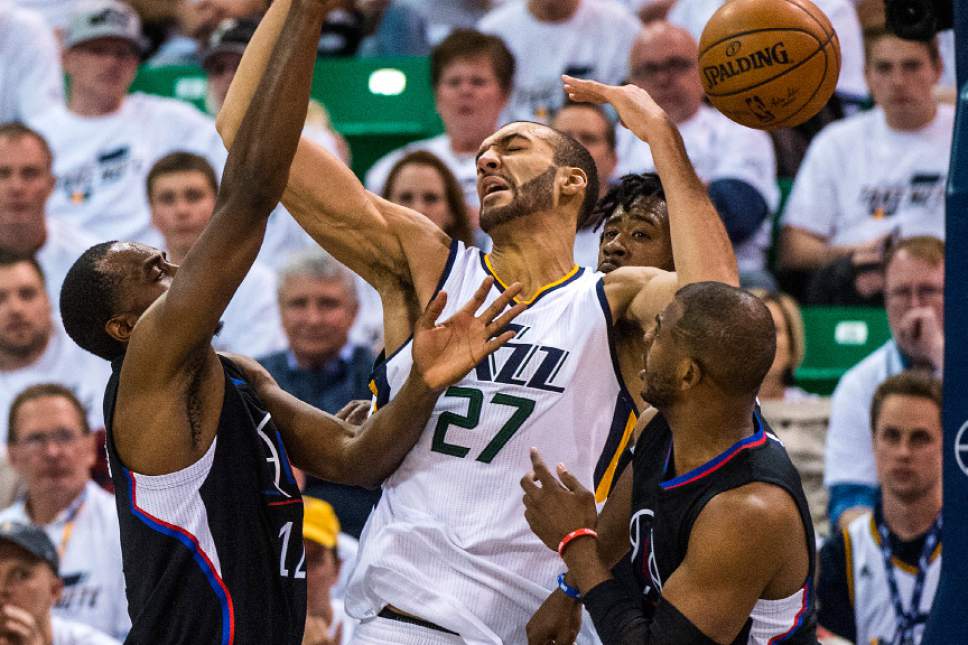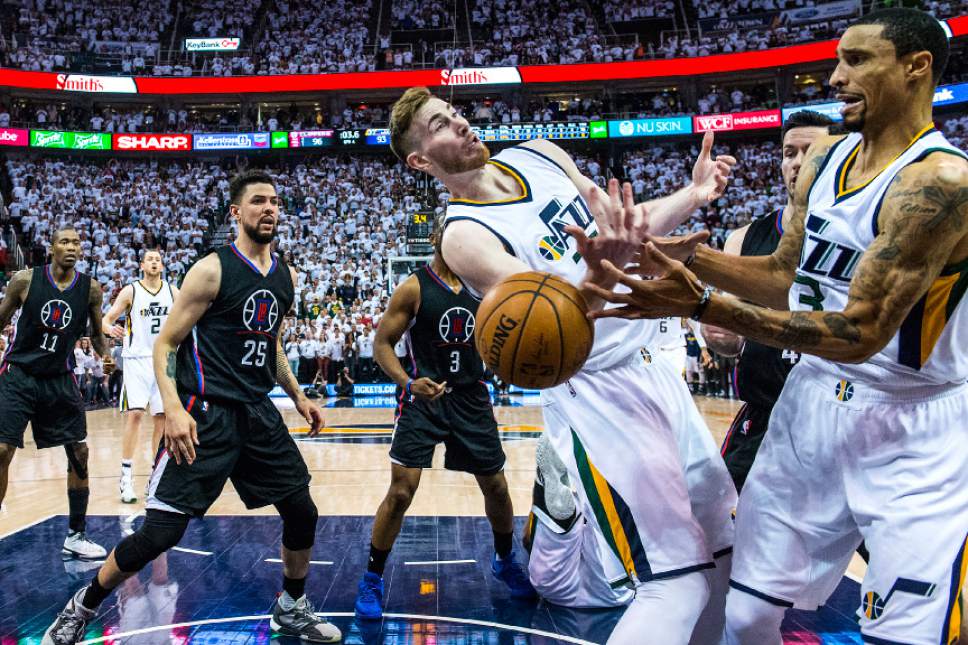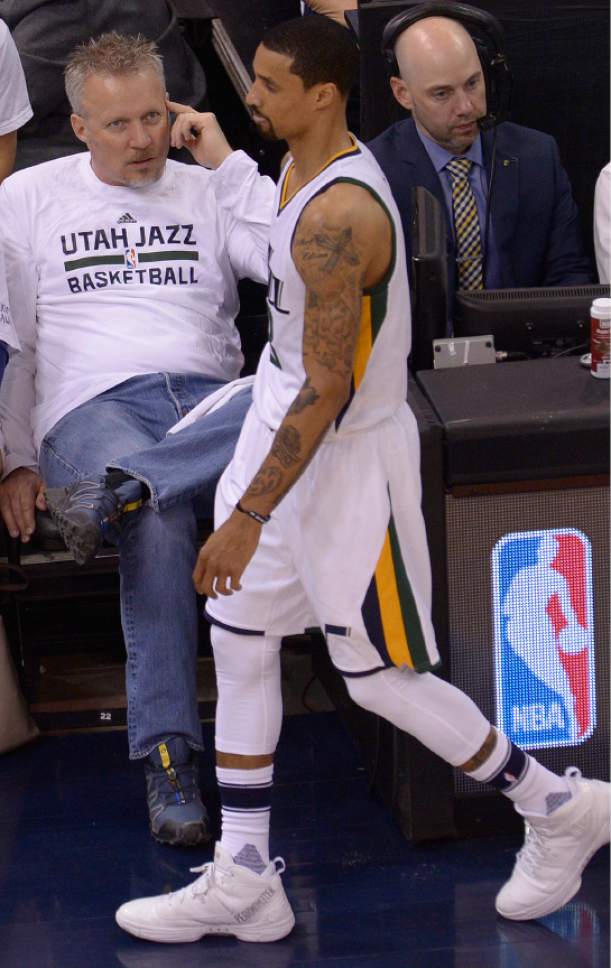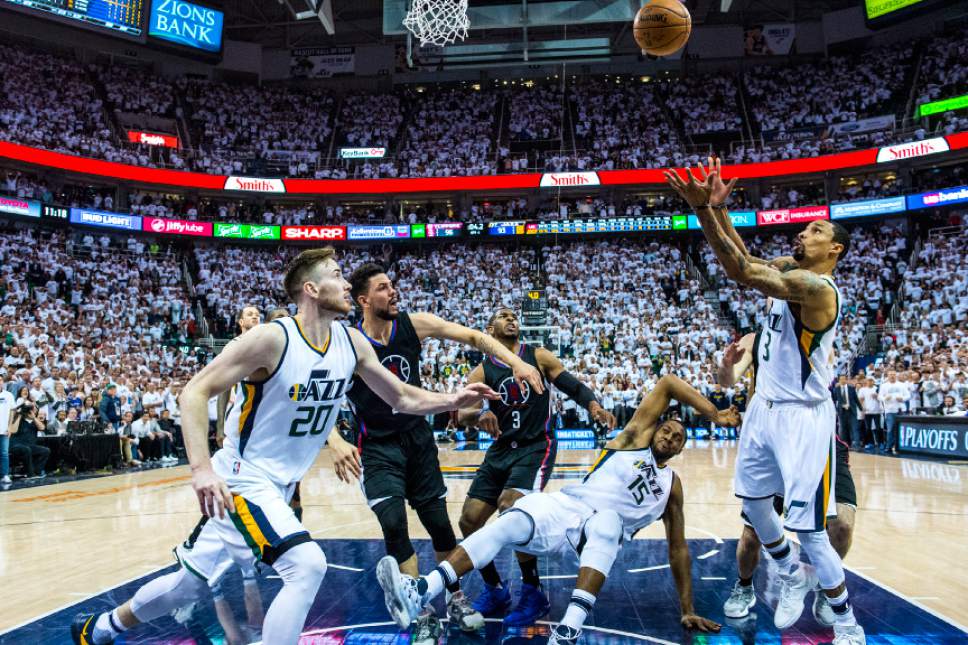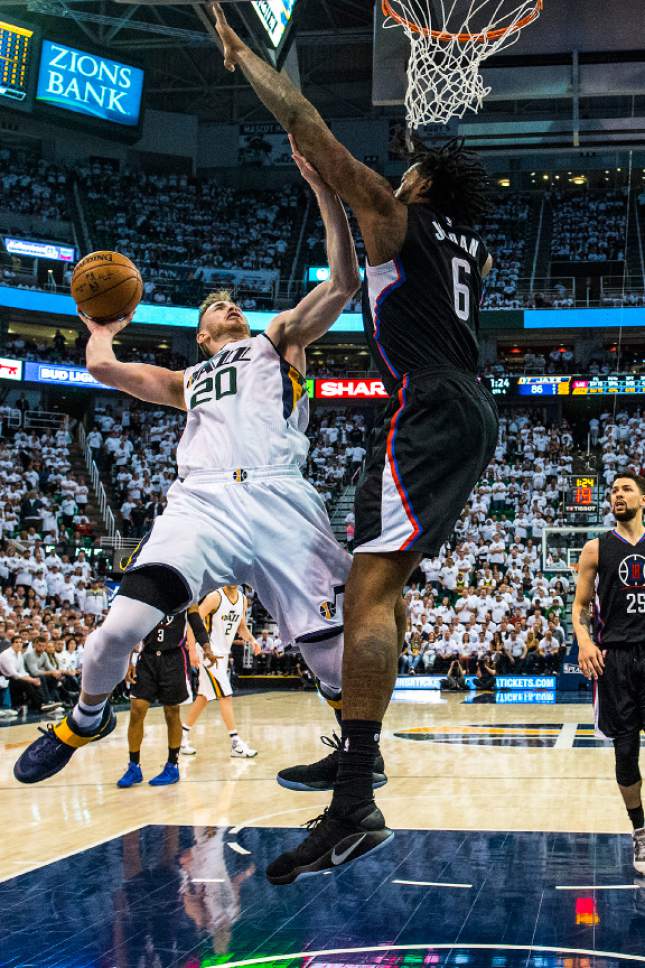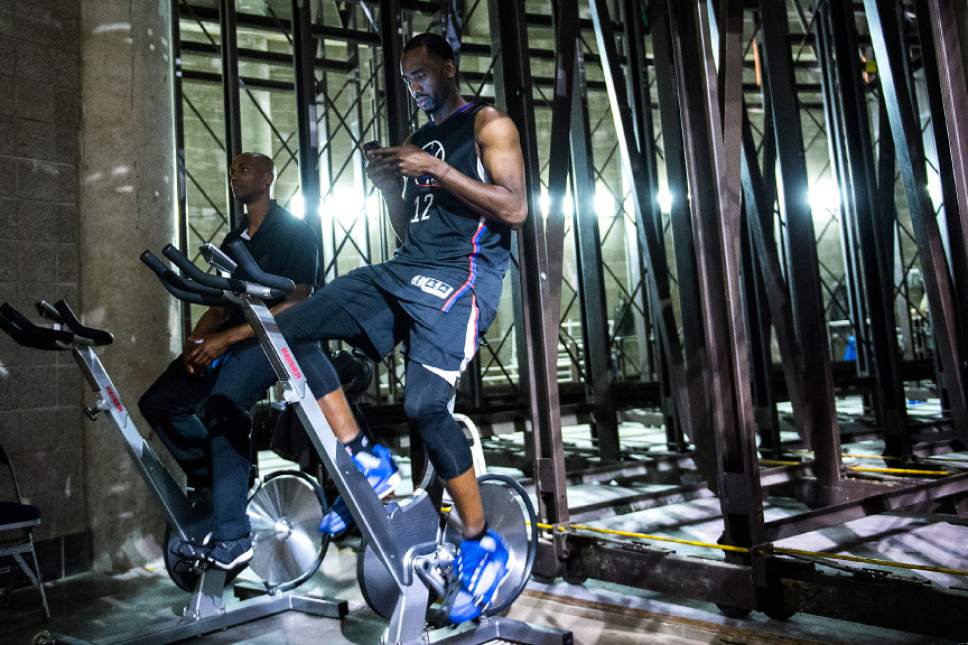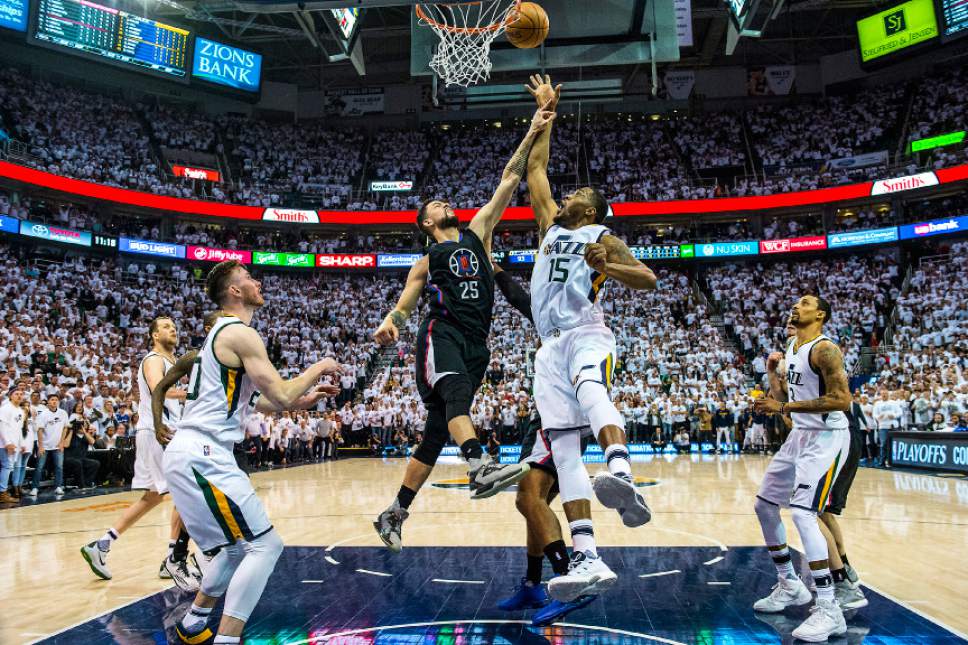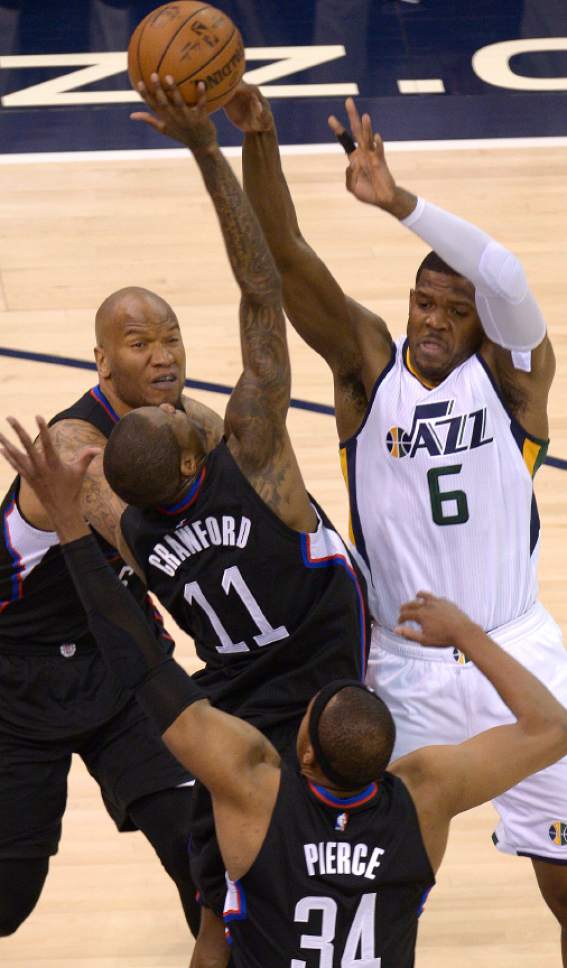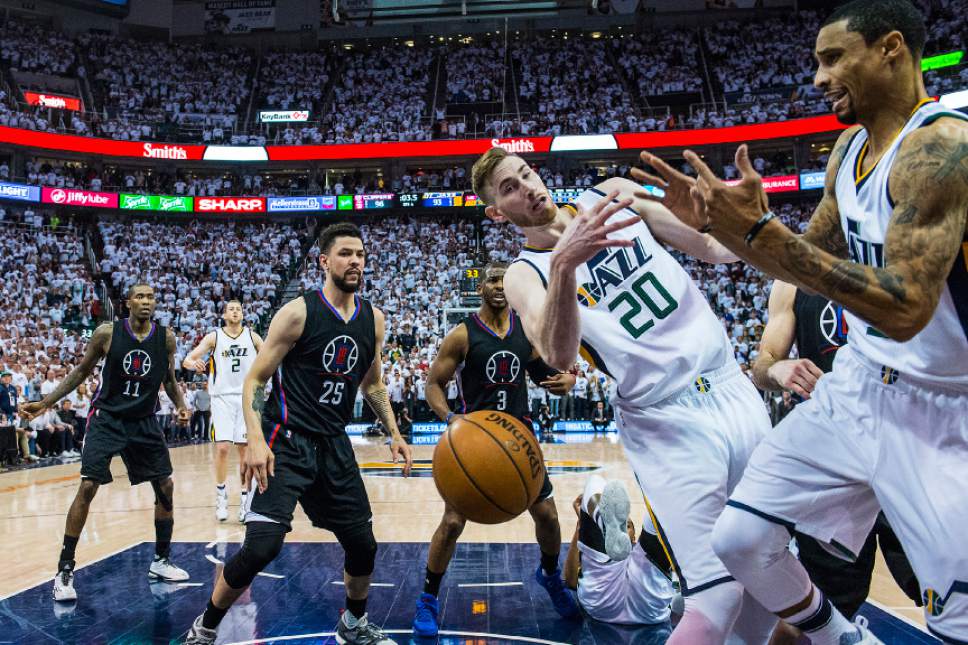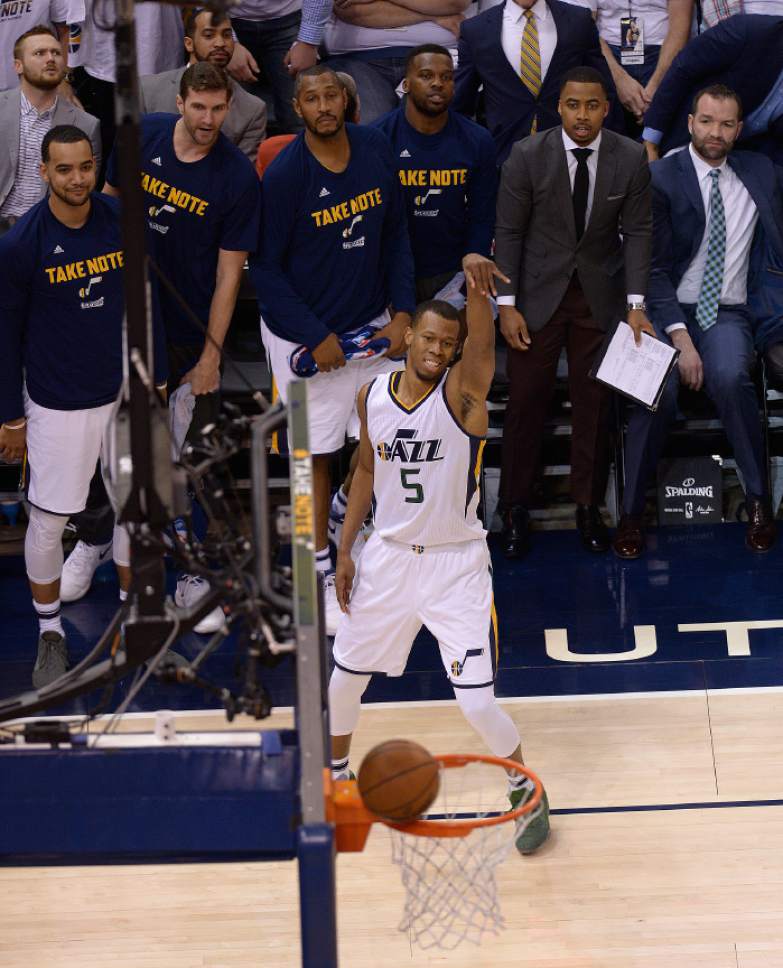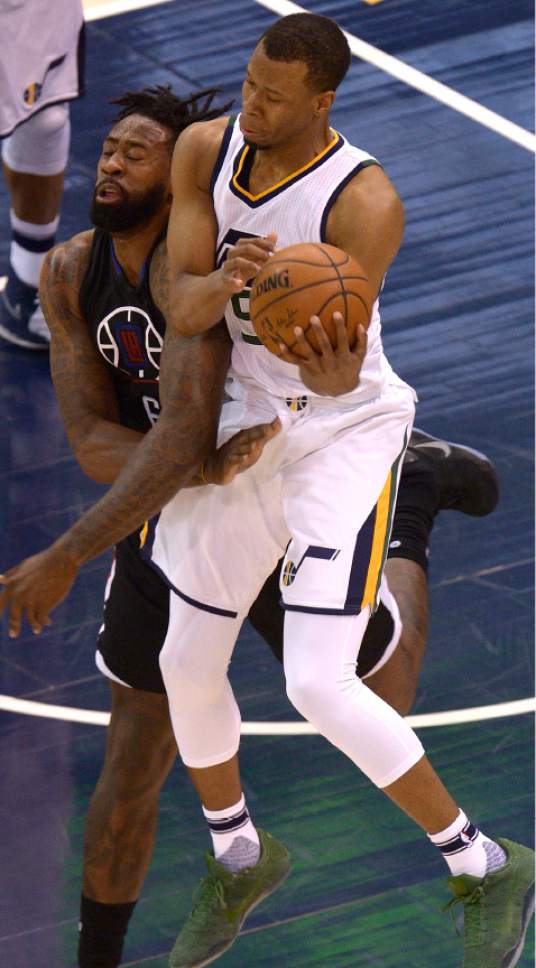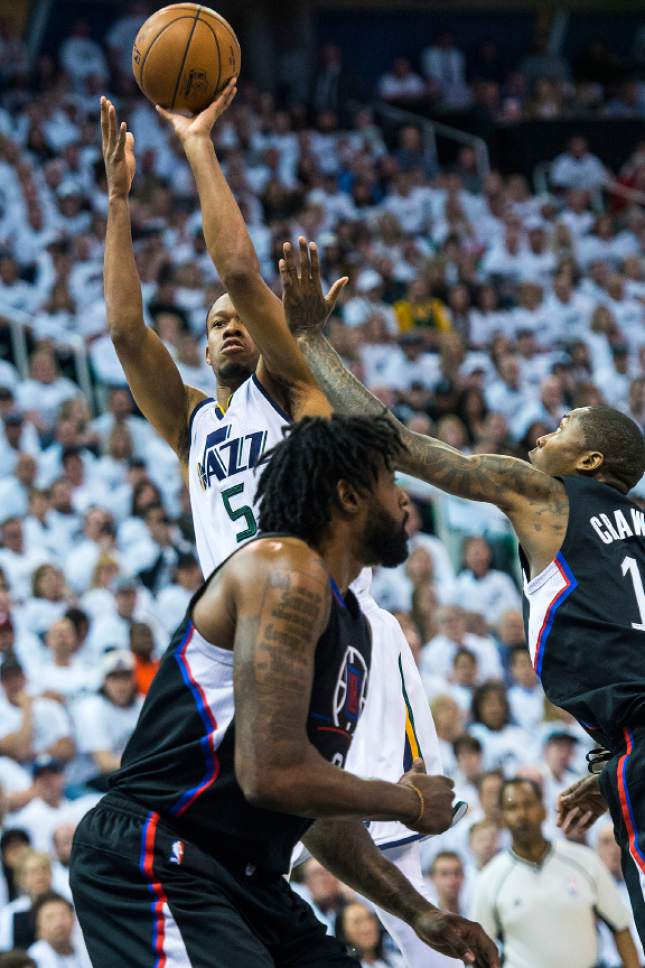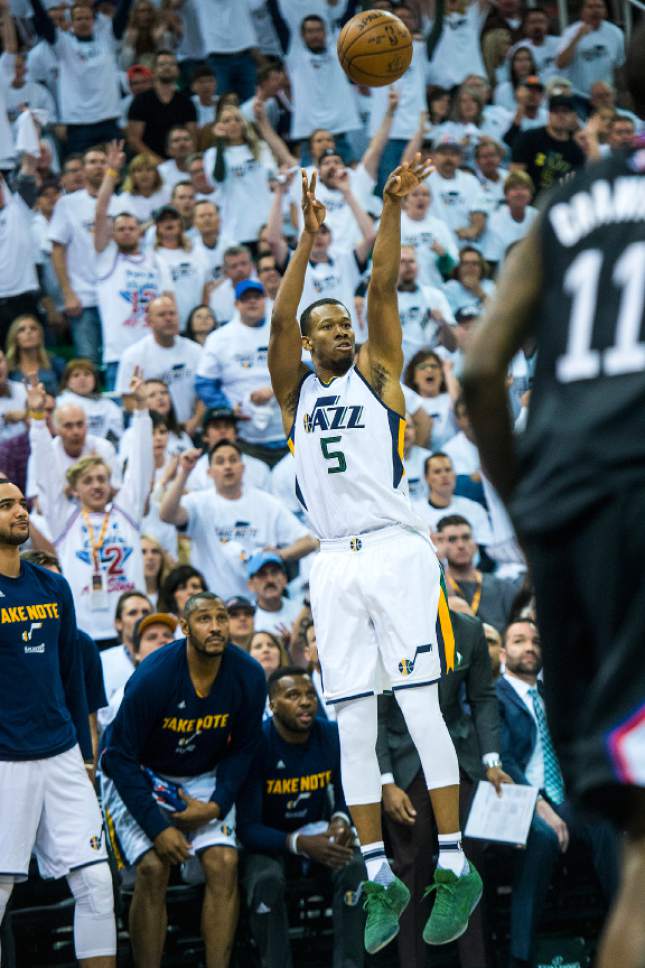This is an archived article that was published on sltrib.com in 2017, and information in the article may be outdated. It is provided only for personal research purposes and may not be reprinted.
The workers charged with completing arena renovations by the end of September secretly may be relieved about the possibility of proceeding with the major project at full speed next week.
As for other Utahns, the letdown caused by the Jazz's 98-93 loss to the Los Angeles Clippers may last all summer.
The Jazz missed their chance to clinch a series victory in Friday night's Game 6 at Vivint Smart Home Arena. So they'll have to win Sunday afternoon in Los Angeles, where this crazy series will end, one way or another. And then somebody will face Golden State in the Western Conference semifinals.
The road team already has won four games in this series, which is either a good sign for the Jazz or a trend that cannot possibly continue. Jazz fans certainly never pictured their team losing two home games to the Clippers — especially not Friday, when the Jazz enjoyed a personnel advantage and had momentum in their favor with two victories this week.
The Jazz battled to the end, cutting a 14-point lead to three in the last minute. But the rally was insufficient, even with Gordon Hayward scoring 31 points.
So for the ninth straight time, a streak that began in 2001, the Jazz probably will go into the offseason having lost their last home playoff game.
Asked before Game 6 what he had learned about his team in the playoffs, Jazz coach Quin Snyder said, "The whole season for us has been a series of events that are illuminating on some level." And the Jazz's ability to "not get out of character as a result of the moment" impressed him.
Yet the Jazz seemed to shrink Friday, passing up some good shots and missing a bunch of open looks. And that's how it ended, with Joe Johnson missing a tying 3-point attempt in the last 3 seconds.
The Clippers wanted to foul intentionally in that situation, but the message didn't get through. "Joe with the ball in his hands is scary for us," Clippers coach Doc Rivers said.
But Johnson, the Jazz's star of their wins in Games 1 and 4, missed his chance to force overtime. The fans who left early almost missed an epic comeback. Then again, missing important stuff was the story of the Jazz's night.
"We didn't respond offensively the way that we needed to," said Snyder, who often uses "forceful" as the trait his team lacks when it is not scoring.
He also pointed to "four or five" missed shots in the first half by Rodney Hood and others when the Jazz seemingly could have taken control.
The Jazz shot 41 percent from the field, going 7 of 26 from 3-point range, and the effect was a loss of energy. "I don't know if we got tired," Snyder said, "or we got tired of missing."
In any case, the Jazz just couldn't make shots and the Clippers wouldn't cooperate with the home team's would-be celebration. They've done this before, you know. In 2015, they won Game 6 at San Antonio and came home to complete the series victory in Game 7.
"This series deserves a Game 7, it really does," Rivers said after Friday's win.
"Fortunately, there is a Game 7," Snyder said.
The difference two years ago was that Blake Griffin went wild in the last two games. In this case, he exited Game 3 just before halftime with a toe injury and was ruled out for whatever remained of the Clippers' postseason. The injuries have evened out to this point. The Jazz have played 174 minutes with either Rudy Gobert or Hayward unavailable, and the Clippers played 171 minutes with Griffin unavailable.
Rivers' adjustment for Game 6 was starting his son Austin in a three-guard look. Austin Rivers entered the series in Game 5 after being injured late in the season. He played 34 minutes, far beyond his supposed restriction, and scored 13 points. As Doc Rivers said, "What are we saving him for?"
As Snyder has been saying, all of this is new to the current Jazz. Yet the franchise's history had been impressive in these situations, with the Jazz teams of Karl Malone/John Stockton and Deron Williams/Carlos Boozer going 5-0 in Game 6 close-out opportunities.
The two most recent Game 6s at home were wild adventures, though. In 2008, the Jazz took a 19-point lead over Houston in the second quarter, only to lose nearly all of that edge by halftime — thanks to Tracy McGrady's 28-point effort. But then Ronnie Brewer held McGrady scoreless in the third quarter and the Jazz rolled to a 22-point victory.
In 2010, the Jazz led Denver by 19 points in the second period, but the Nuggets stormed ahead by eight points in the third quarter as somebody named Joey Graham became unstoppable. The Jazz responded, winning by eight as Boozer and Wesley Matthews produced big scoring nights and Williams, Kyle Korver and Paul Millsap made big contributions.
Such history suggested there was little chance that Game 6 would result in the first blowout of the series. Sure enough, the Clippers responded with an 11-0 run after the Jazz took a nine-point lead late in the first quarter.
In the pregame media session, Doc Rivers offered a philosophical observation about his team's challenge. "We are right where we're supposed to be," he said. "That's the journey. … Is that too deep for you guys?"
Well, yeah. What everybody could grasp going into Game 6 was that Paul, who already was averaging 27.0 points in the series, would be central to the outcome. "Great players tend to be great in great moments; that's why they're great players," Doc Rivers said. "They just have an ability to rise and go places that us mortals can't go."
One of the game's key sequences, though, began late in the first quarter with Paul resting. Trailing by nine points, the Clippers launched an 11-0 run that "literally changed the complexion of the game," Rivers said.
In the end, Paul finished with 29 points and the Jazz couldn't overcome him. That reflects the Jazz's mortality, and reality, in a building that probably will go dark too soon.
Twitter: @tribkurt


